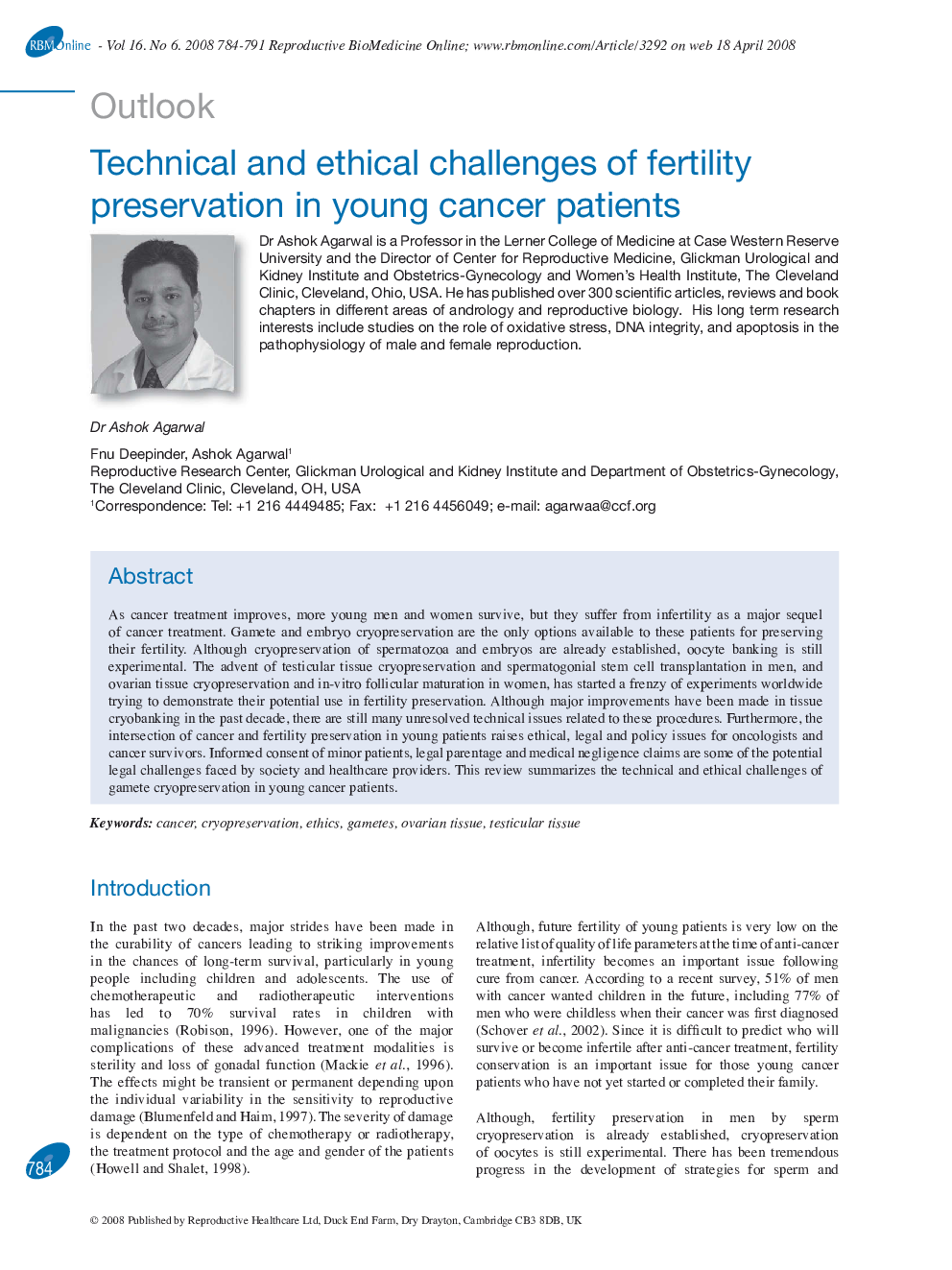| Article ID | Journal | Published Year | Pages | File Type |
|---|---|---|---|---|
| 3972472 | Reproductive BioMedicine Online | 2008 | 8 Pages |
As cancer treatment improves, more young men and women survive, but they suffer from infertility as a major sequel of cancer treatment. Gamete and embryo cryopreservation are the only options available to these patients for preserving their fertility. Although cryopreservation of spermatozoa and embryos are already established, oocyte banking is still experimental. The advent of testicular tissue cryopreservation and spermatogonial stem cell transplantation in men, and ovarian tissue cryopreservation and in-vitro follicular maturation in women, has started a frenzy of experiments worldwide trying to demonstrate their potential use in fertility preservation. Although major improvements have been made in tissue cryobanking in the past decade, there are still many unresolved technical issues related to these procedures. Furthermore, the intersection of cancer and fertility preservation in young patients raises ethical, legal and policy issues for oncologists and cancer survivors. Informed consent of minor patients, legal parentage and medical negligence claims are some of the potential legal challenges faced by society and healthcare providers. This review summarizes the technical and ethical challenges of gamete cryopreservation in young cancer patients.
